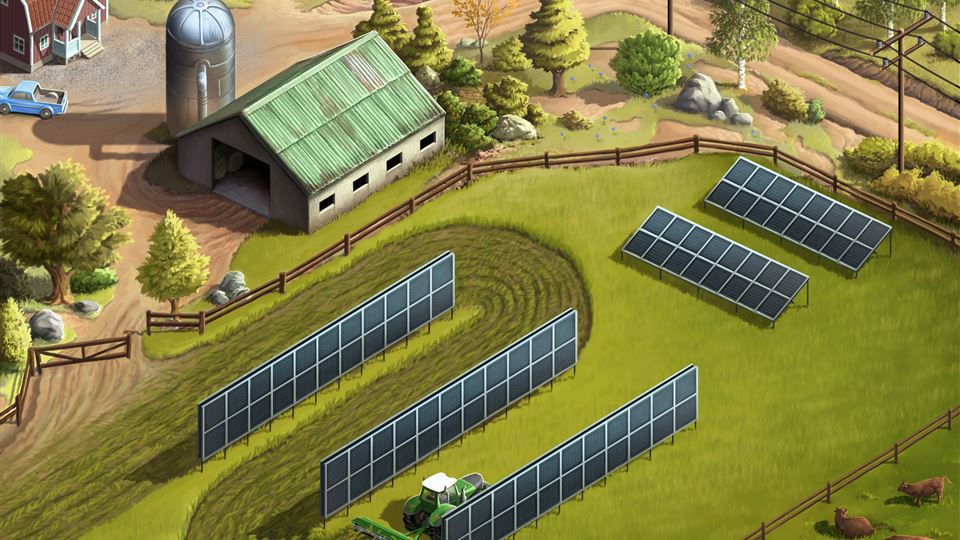Evaluation of the first agrivoltaic system in Sweden

The aim of this project is to carry out a feasibility study of how agrivoltaic systems, that are the combination of farm activities and solar parks, can increase the energy efficiency and economic viability of PV systems in Sweden.
Concluded
Start
2020-09-01
Conclusion
2022-12-31
Main financing
Collaboration partners
Research area
Project manager at MDU
Agrivoltaic systems presents several advantages over traditional ground-based photovoltaic systems: higher electricity yield, crop yield and water savings as compared to common practices. The combination of revenues can lead to high land use efficiency and shorter payback time. This project will address the topic of agrivoltaic systems using a holistic approach that combine three different macro-areas (energy, food and water) with an interdisciplinary research group.
The research activities will focus on feasibility test at a farm nearby Västerås, simulation and optimization model development, and development of novel key economic performance indicators. The results of this project will boost the photovoltaic market and research activities in Sweden.
Project objectives
Specific objectives of this project are:
- Install the first agrivoltaic system in Sweden.
- Develop an energy-food-water nexus model to simulate and optimize agrivoltaic systems.
- Validate the model with data from the installed prototype and with data from the international partners.
- Develop an economic model for the spread of agrivoltaic systems together with the industrial partners.
- Scale-up of the model to assess the potentials of agrivoltaics on a country level.
Publications
- Towards an operational irrigation management system for Sweden with a water–food–energy nexus perspective
 External link.
External link. - Photosynthetically active radiation decomposition models for agrivoltaic systems applications
 External link.
External link. - Optimisation of vertically mounted agrivoltaic systems
 External link.
External link. - 3D-thermal modelling of a bifacial agrivoltaic system: a photovoltaic module perspective
 External link.
External link. - Computational fluid dynamics modelling of microclimate for a vertical agrivoltaic system
 External link.
External link. - Direct and diffuse shading factors modelling for the most representative agrivoltaic system layouts
 External link.
External link.
Book
Final report
Follow this project on LinkedIn
Project page on LinkedIn

